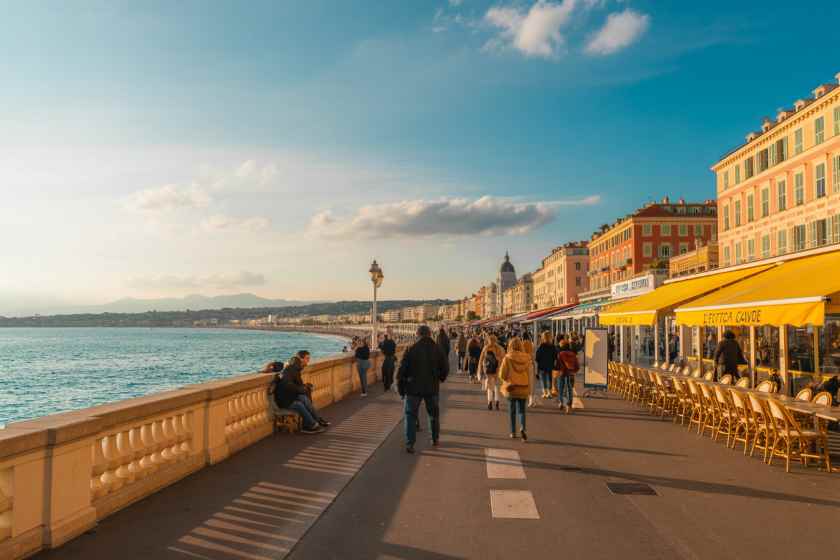Published on
August 14, 2025
The UK Foreign Office has just refreshed its travel advice for UK visitors heading to France, focusing especially on those with mobility impairments who hold a Blue Badge. France remains one of Europe’s most popular tourist spots, admired by millions each year, and many of those visitors have mobility challenges. The new guidance helps everyone plan better, so accessibility and enjoyment go hand in hand the entire trip.
The Blue Badge, issued by the UK government, gives people with serious mobility difficulties the right to park nearer to where they need to go. The latest Foreign Office notice gives Blue Badge holders practical information on how the scheme operates in France and how to make the most of the permit while on holiday.
France Tourism Rules
When traveling to France with a Blue Badge, the permit will still open doors for parking near attractions, shops, and public spaces. Holders will notice designated spaces in many towns and cities. Nevertheless, it’s crucial to remember that while the badge itself remains valid, parking laws and practical details can differ between the UK and France, so checking local guidance is a wise step.
The Foreign, Commonwealth & Development Office has just updated its travel guidance for France to clarify how UK visitors with mobility impairments can use their Blue Badges there. Though France has its own disabled parking permit, the UK Blue Badge remains valid, but travelers should be ready for some extra steps. The advice makes it clear that, with the right knowledge, Badge holders can smooth their parking arrangements and find the spaces set aside for those who need them, so they can make the most of France’s cities and sights.
Changes to French rules governing disability parking mean UK travelers should keep a few things in mind. The Blue Badge is still accepted, but the way parking is policed and the types of badges seen may differ from the UK. The Foreign Office therefore recommends checking that your Blue Badge is still valid in France and taking a little time to review the local parking rules and signs before travel.
In some parts of France, Blue Badge drivers are advised to get a local parking permit for the duration of their visit. While city authorities reserve special parking spots for disabled users, the scarcity of space in busy areas—especially in Paris and Nice—can pose a challenge. Tourists are therefore urged to research parking options in advance, particularly during the summer months when demand peaks.
To minimise potential problems, the Foreign Office recommends that UK Blue Badge holders keep a French-language translation of their badge details with them. This simple document clarifies the badge’s legitimacy and helps ensure that parking enforcement doesn’t delay their journey.
Accessibility Across France
France’s rich cultural heritage and scenic beauty continue to draw millions of visitors each year. The Foreign Office’s updated travel guidance seeks to open France’s celebrated landmarks to everyone, empowering travellers with reduced mobility to enjoy the splendour of the country on equal terms.
Well-loved spots like Paris—with the glitter of the Eiffel Tower and the treasures of the Louvre—are opening wider to travelers who need extra support. Over the past few years, France’s museums, galleries, and time-honored buildings have rolled out welcome upgrades: smooth ramps, inviting lifts, and attentive services crafted just for visitors with disabilities.
But it’s not just the city that’s ready. France’s rolling vineyards, sun-kissed beaches, and breezy coastal paths are also joining the trend, with adapted facilities that make it easier for everyone to explore. The Foreign Office still recommends that Blue Badge holders dig into the details of each stop, checking that the ramps, restrooms, and parking spots they need will be ready.
Getting ready to journey to France: the latest from the Foreign Office steadies Blue Badge travelers with a step-by-step guide. Start by double-checking that your Blue Badge is still valid. Then, sift through parking options and make sure you know the parking rules that France expects. Finally, go ahead and secure your stay early, so the hotel or rental can confirm the amenities, like wider doorways or roll-in showers, that will keep your trip worry-free.
Travelers intending to reach France by train should verify with their carrier that accessible features are in place, like low-floor carriages and assistance when boarding. France’s train system, especially the TGVs, has improved accessibility for disabled passengers, but advance planning is the best way to sidestep any potential obstacles.
Beyond transport and parking, the Foreign Office stresses that health care must also be carefully considered. Blue Badge holders with ongoing medical needs should consult their health provider well before the trip to secure the right medicines and any other necessary support items.
Conclusion
The Foreign Office’s latest advice for travel to France marks progress in opening the country to visitors with limited mobility. Guidance on using the Blue Badge in France means that tourists can move around with greater assurance. With attention to detail in preparation, Blue Badge holders can explore France’s renowned sights and its quaint rural lanes with markedly fewer accessibility challenges.
The Foreign Office is doing its part by sharing this useful guidance, which strengthens both tourism and inclusivity, and guarantees that every traveler can explore France with confidence and satisfaction.
